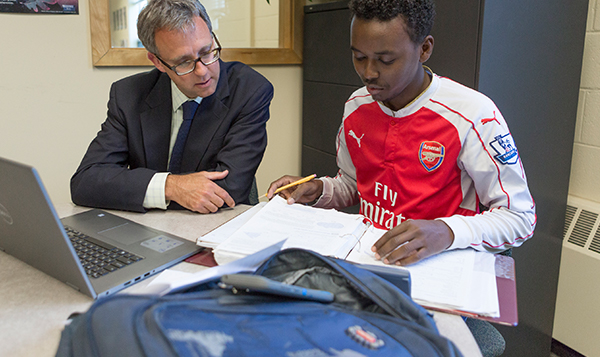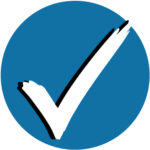Going back to school may be a necessity if you’ve lost your job or need to make a career change. It might also simply be a way to make more money or have more satisfaction in your job. Maybe it’s a goal you’ve always had.
Choose a Higher Education Program: College, Certificate, Training Program
Adult students often have a real advantage when returning to school. Despite maybe having more demands on their time, such as balancing work, school, and family, they more clearly see the value of higher education. They’ve also lived and worked in the “real world” and tend to be more focused on their career goals.
Whether you have a firm career goal in mind or are still exploring your options, here are some tools that can help you learn more about a career and how to connect future learning or training to that career goal.
Research a Career
One way to find the right program is to think about what skills are required to get you to the next level of your current career, or what skills and education are required for a career transition. Once you determine the skills, training, and education required, you can search for a program that will help you meet your goals.
Helpful Career Search Resources
- Maine Career Center – Explore careers, training and jobs in Maine.
- Career One Stop – Explore careers, training and jobs throughout the United States.
- FAME Student Loan/Salary Calculator – Make informed student loan borrowing decisions.
- For further exploration, complete a self-directed career exploration/assessment profiler.
Career Planning and College Application Assistance
If you need help with the college preparation, application, or transition process, learn more about the assistance available through these programs:
- Maine College and Career Access is a preparation program that includes career planning, academic preparation, financial aid assistance, college planning, and ACCUPLACER testing, all delivered through local adult education programs.
- Maine Educational Opportunity Center (MEOC) is committed to assisting adults wishing to reenter a formal education setting. Funded to serve traditionally under-represented adults, the majority of MEOC participants are of the first generation in their families to go to college.
Choosing a College or Training Program
When choosing a college or training program, consider the flexibility of the class schedule, the location, availability of online courses, and the resources to help you succeed.
Consider options such as training programs through adult education, Maine’s community colleges, or other workforce development programs.
When researching schools, find out about a Prior Learning Assessment, sometimes referred to as a PLA. A Prior Learning Assessment may allow you to earn course credits for experiences gained outside postsecondary education. Reducing the total number of courses you take to earn your degree will help you reach your goal more quickly and will lower your college expenses.
Pay for College
Paying for college is generally the same for students entering college from high school or adults starting or returning later in life. The process for applying for financial aid and researching scholarships is similar. However, many returning students are concerned about how to juggle not only college expenses but also the loss of income that may come from reducing work hours to focus on school. Fortunately, there are ways to make starting or returning to school affordable.
Financial Aid
The financial aid process and types of financial aid you are eligible to receive are typically the same for students of all ages. Many types of financial aid are available even if you plan to attend school part time.
Scholarships for Adult Students
Many scholarships are targeted specifically to adult learners. Be sure to use terms like “nontraditional student,” “adult student” and “returning to school” when searching for scholarships. Learn more about acing your scholarship search and also visit these helpful sites:
- Maine Community Foundation
- Maine Competitive Skills Scholarship helps workers learn new skills and succeed in a changing economy.
- Adult Degree Completion Scholarship supports adult students returning to college after an absence of three years or more and who are completing their very first bachelor’s degree.
- Many schools also offer scholarships especially for adult students. Check with any schools or programs you are interested in attending.
Explore State-Level Programs
The State of Maine Office of Family Independence, a division of the Department of Health and Human Services, has programs available to help students with dependent children reach their academic goals. Two of these wrap-around support programs are the Parents as Scholars (PaS) program and Higher Opportunity for Pathways to Employment (HOPE). Both provide financial support beyond direct higher education expenses and include a point person to help you navigate and complete a degree program. Information on eligibility and program requirements can be found on the program websites.
Maine Grant and Loan Programs
Maine offers grant and loan programs to help Maine students afford higher education and to help meet Maine’s workforce needs. The Maine State Grant Program provides need-based grants to Maine undergraduate students attending a Maine school (or enrolled in a NEBHE Tuition Break Program). Students enrolled at least half time may be eligible.
Employer Benefits for Education
Many students continue to work while attending school. Some employers offer education benefits such as tuition reimbursement. Ask your employer if they offer education benefits and how the process works at your company (i.e., up-front payment or retroactive reimbursement).
Tax Benefits for Education
Take advantage of tax credits and deductions to lower the overall cost of attendance or help with student loan repayment. The state of Maine and the federal government offer tax benefits for higher education.
Financial Wellness
Creating a budget and/or reducing your expenses will help manage college costs. Learn more about setting financial goals, creating a budget, saving and investing, and other money management topics.
Managing Student Loans
If you have student loans from previously attending college, you may have questions about how to manage your student loans when you return to school.
Save for College
If you have the opportunity to plan ahead, saving for college is a great idea and can potentially reduce your student loan borrowing. That’s because every dollar saved is a dollar you won’t have to borrow with interest.
Section 529 Plans
Section 529 plans are tax-advantaged investment plans available through most states to help students and families prepare for college expenses. Maine residents may qualify for matching grants from Maine’s Section 529 plan to help them along with their college investing. Learn more about Maine’s Section 529 plan, NextGen 529®.
Other Resources to Help Adult Students
If you need help with the college preparation, application or transitions process, learn more about the assistance available through these programs:
Depending on your specific circumstances, these resources may help you afford to go back to school:
- Maine Department of Health and Human Services provides a wide range of programs and services to support children and families.
- Maine State Housing Authority offers various programs, including subsidized and voucher housing assistance, energy assistance and home ownership support, that benefit low- and moderate-income families.
- Maine Department of Labor – Unemployment Insurance provides information on unemployment benefits.
- Maine Department of Labor – Bureau of Rehabilitation Services offers a variety of programs to support individuals with disabilities.
- 211 Maine is a comprehensive statewide directory of over 8,000 health and human services available in Maine.
- Download the Maine Resource Directory




